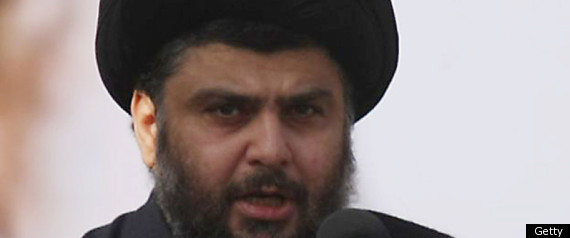It won't work. Iraqis still have a bad taste in their mouths over the Iran/Iraq war. There may be a treaty of some sort but tribalism will quickly kick in.
They have a common "enemy" now. Remove it and the old hurts will kick in.
(Note for clarification, this is an addendum to what you are saying, not an argument against it):
Something to keep in mind about Iraq is just how tribal it is. We in the West like to view it as Shi'a Arabs, Sunni Arabs and Kurds, but that barely scratches the surface. Unless you can tell me something about all of the tribes in
this list, you really are not an expert on Iraq. At the minimum, you have to know which tribes are major players and who is friends with whom. Some of the Sunni tribes are closer to the Shi'a tribes than other Sunnis. Some have ties to Ba'athists, others do not. It's an incredibly complicated web.
Here's a statistic for you just to show you how important tribal relations are in Iraq: nearly half of all marriages are between first or second cousins. Outsiders are simply not to be trusted in Iraq. Tribalism runs deep.
--------------------------------------------------------------------------------------------------
Kurdistan is the safest place in Iraq hands down especially for foreigners looking to invest, the Kurds are ahead of the Arabs in that country, the Arabs know that and it pisses them off so there may be a conflict in the future when we leave.
Iraqi Kurdistan is the brightest thing to come out of the war. It's supposed to be a great destination for tourists. If only Baghdad could be like that. Baghdad was once the greatest city in the Middle East and as recently as either the '70s or '80s was considered a great place to have some fun (lots of booze).
The Kurds got screwed out of their own country when the borders were drawn up for the countries of Turkey, Iran, Iraq and Syria. Kurds are not Arabs, Turks or Persians, they are their own distinct culture, they are mainly Sunni Muslims but are mainly secular in nature, they don't really fit in with the Arabs, Persians and Turks and they are disliked and seen as a burden, which is why Saddam tried to kill them all and why the Turks have been trying to as well. In Turkey the Kurds were not even allowed to teach their own language in schools.
In terms of ethno-linguistics and culture, they're the closest to the Persians. To be more accurate, they're Iranian (like the Afghani Pashtuns), but they're not Persian. I saw some genetic analysis that found that Iraqi Kurds have definitely intermarried with the local Arabs, although their language and culture have remained Kurdish.
Like you said, the Turks have treated the Kurds poorly. Until 1991, the Turks didn't even recognize that the Kurds existed. They were called "Mountain Turks." There was some ethnic cleansing done by the Young Turks, although not to the degree that the Armenians suffered. This is probably because the Kurds were seen as less of a threat because they were Muslim and would not side with Christian Russia (one of the primary reasons for the Armenian genocide).


